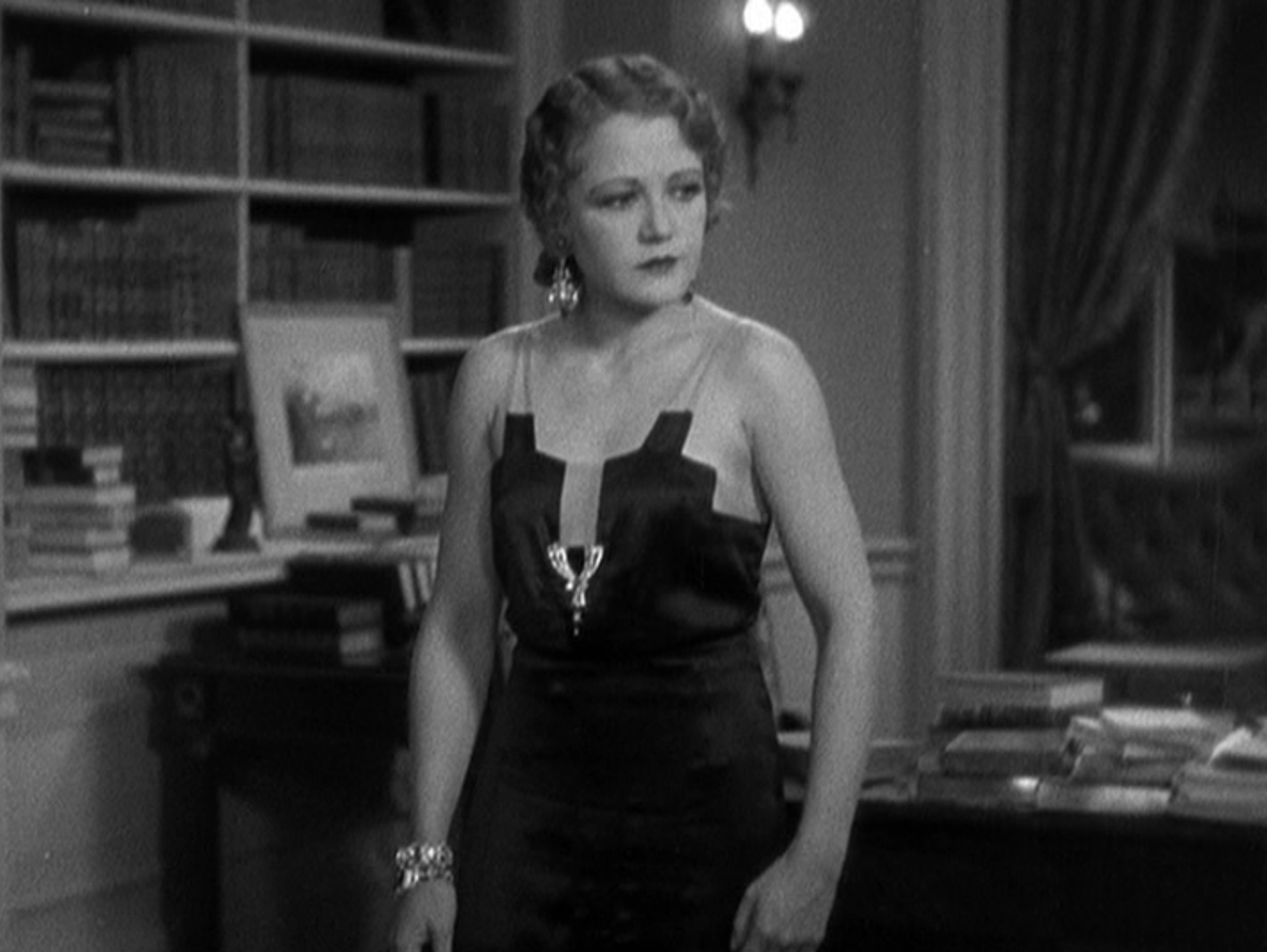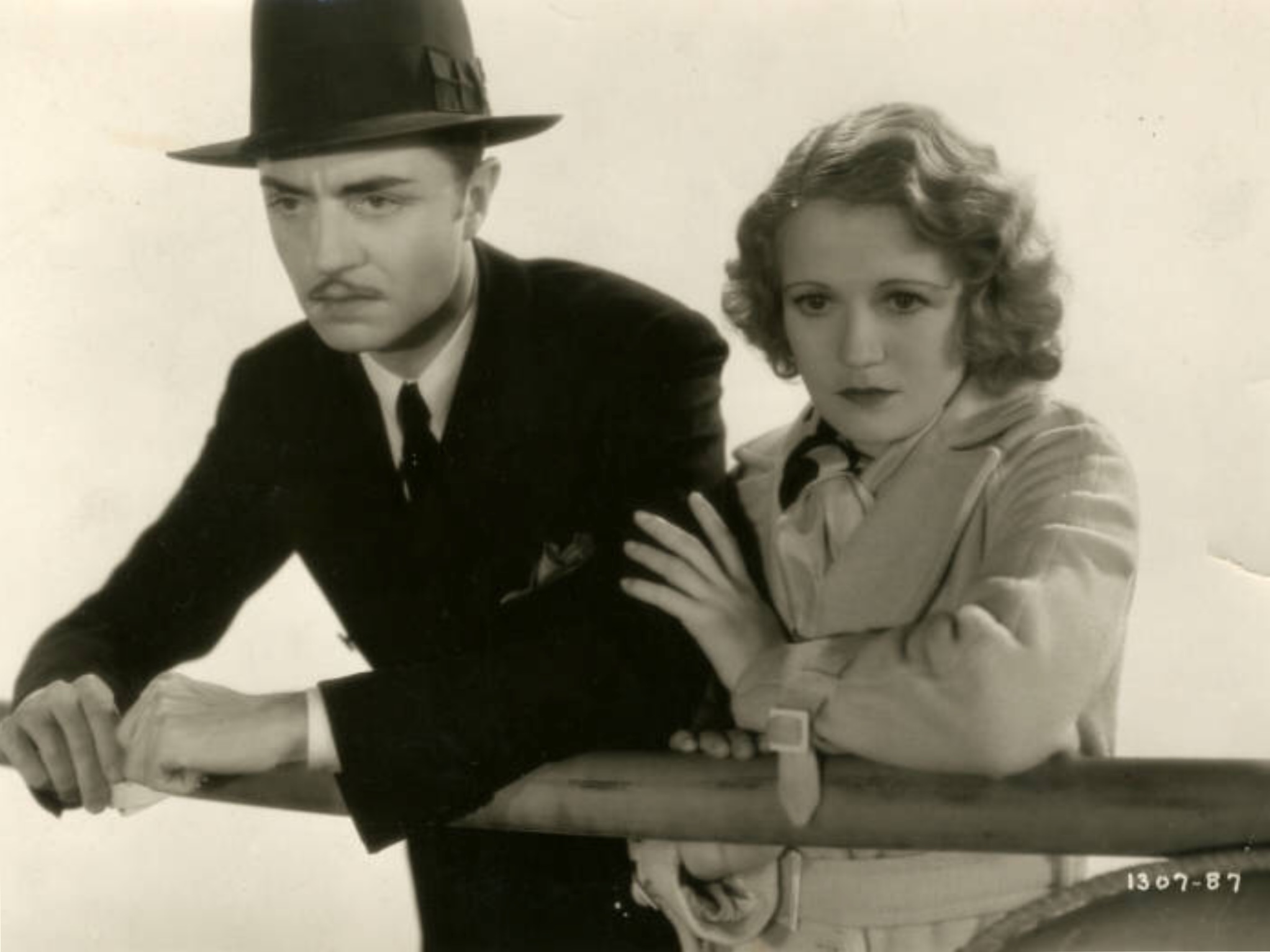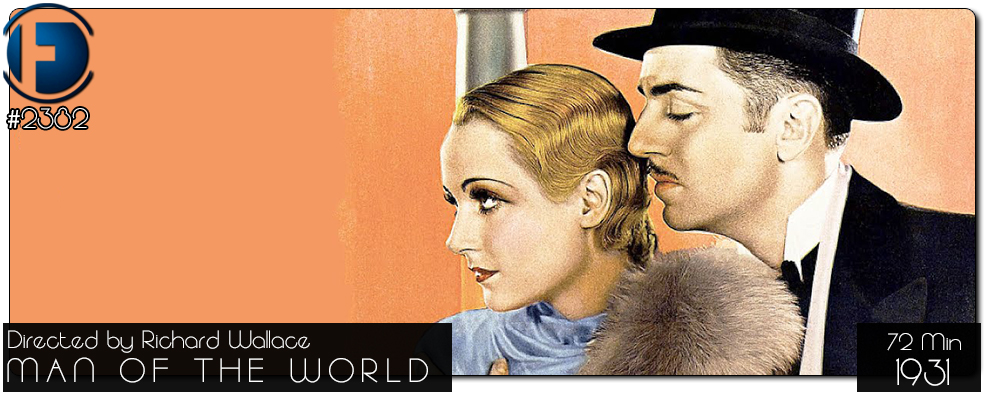Movie Review – Man Of The World (1931)
Principal Cast : William Powell, Carole Lombard, Wynne Gibson, Lawrence Gray, Guy Kibbee, George Chandler, Andre Cheron, Harvey Clark, Tom Costello, Tom Ricketts, Rolfe Sedan, Maude Truax.
Synopsis: A young American girl visits Paris accompanied by her fiancee and her wealthy uncle. There she meets and is romanced by a worldly novelist; what she doesn’t know is that he is a blackmailer who is using her to get to her uncle.
********
Despite the star duo of William Powell and Carole Lombard, and the solid direction of Richard Wallace, nothing appears to be able to salvage much from the dreck that is Man of The World, a Paris-set romantic comedy-drama that’s light on romance, threadbare with wit, and hugely overblown when it comes to the drama. Although clocking in at a respectably brief 72 minutes, the pacing of the film’s second and third acts is tedious indeed, as the story gives way to a con-artist trying to wrestle with his conflicted conscience, and the audience is, sadly, along for the ride. Powell and Lombard’s on-screen chemistry – a strength of their real-life marriage and on-screen partnership in future films – is almost non-existent, with the blonde star often outshining her debonair male lead in every scene here, while a bitter turn from Wynne Gibson, in a thankless shrew-like role, sours much of what ought to have been a light, fluffy romp.

Man Of The World is a 1931 pre-Code drama centred on Michael Trevor (William Powell), an expatriate American living in Paris. Michael, once a journalist, has turned to a life of shady dealings, operating a blackmail scheme targeting wealthy Americans who visit the city. He meets and falls in love with Mary Kendall (Carole Lombard), a young and innocent American woman vacationing with her uncle, the wealthy Harry Taylor (Guy Kibbee). Drawn to her purity and charm, Michael begins to question his immoral lifestyle and the consequences of his actions. As Michael tries to balance his growing affection for Mary and his entanglement in the world of crime, his partner in the blackmail operation, Irene Hoffa (Wynne Gibson), complicates matters by reminding him of their financial dependency on their schemes. Michael finds himself torn between his desire for redemption through love and the cynicism that has defined his life. Ultimately, his love for Mary drives him to make a noble sacrifice, ensuring her happiness and protecting her from the darker side of his life, even at the cost of his own future.

It’s hard to fathom how a film so bland and tired could have come from the pen of legendary Hollywood screenwriter Herman J Mankiewicz, and yet here we are. Ostensibly a morality tale about the difference between doing the wrong thing, and following your heart, Man of The World purports for deeper meaning than Richard Wallace’s direction can accomplish. Wallace isn’t a slouch behind the camera either, and to a large degree his framing, editing and attempts to draw out character beats is pretty decent, so partnering him with Mankiewicz’ script might have felt like a good match on paper. Unfortunately, the end result of this dour endeavour wastes a strong opening with uneven tonality in the final act, and a downbeat ending that could have been a lot more powerful had the film’s character arcs been fleshed out better.

As with most films of the period, brevity is the soul of wit, and the film is surprisingly quick on its feet getting through the romantic and dastardly blackmail subplots at play here, and for the first third of the film both Powell, Lombard, and co-stars Guy Kibbee and George Chandler seem aimed truly at a genteel heist-esque lark, until Wynne Gibson’s tortured portrayal of Irene steps onto the screen and ruins it all. Powell is as enigmatic and charming as always, until the time comes to emote or provide some kind of resonance to his choices as a character, and I was surprised to find he seemed incapable of it to a degree that misfired the film. Powell’s Michael Trevor is a conman, and his cane-twirling, top-hat-wearing man-about-town charade in the streets of Paris is as archetypal a silhouette as they come for this kind of genre. But the character lacks a genuinely compelling thrust to his arc, and a mid-film reveal by the character feels… I don’t know, weird, considering the story has spent much of its energy detailing just how clever and conniving he is. I buy Powell as the slick smooth-talking operator, but Wallace and the screenplay fumble the possible romantic angle badly.

Carole Lombard is the white flame around which the male moths swirl – she’s a delight in almost every film I’ve seen of hers to this point, and once again she highlights just what a presence her luminous appeal had to Hollywood and her stardom. Little wonder she and Powell married in June 1931 (they divorced in 1933), but their appeal together in this film is anaemic to say the least. Gibson does her best as the dour Irene, a cohort of Powell’s small gang of which Tom Costello, as Spade, plays the third wheel. There appears to be some intended backstory between Irene and Michael that isn’t fleshed out enough other than a single line of dialogue, and the fact that Irene is still holding a candle for her former lover isn’t revealed until far too late in the movie for it to impact the tone of the movie’s dramatic lurch to the right. Initially the film plays like a light-hearted romp, but it soon moves to a wannabe compelling drama that runs out of puff, despite plenty of pregnant pauses in the dialogue as Powell stares off into the middle-distance with all his impressive acting skill. It’s about the only time I’ve ever seen Powell trying to act; normally he’s so natural on-screen but I got the sense here that he was legitimately uncomfortable with the material and couldn’t quite make the non-humorous stuff work as he might have liked.

I was so looking forward to enjoying the promise of this Euro-centric movie. The lead actors were inviting, the screenwriter promised something excellent, but the film delivers few twists and even fewer moments of enjoyment. There are a couple of lines of dialogue that made me cackle and caw with pleasure but on the whole the film’s disinviting tone and crushing third act is hardly one I can recommend. I did enjoy some of the production values of this studio-bound film, with rear-projection views of the Île de la Cite and other Parisian landmarks peeking from behind open window shades, and the cinematography is rather excellent from Victor Milner (Oscar winner for 1934’s Cecil B DeMille version of Cleopatra). I would recommend it for completists only, and for me is a bottom-rung Powell film despite a tremendously engaging opening act.

